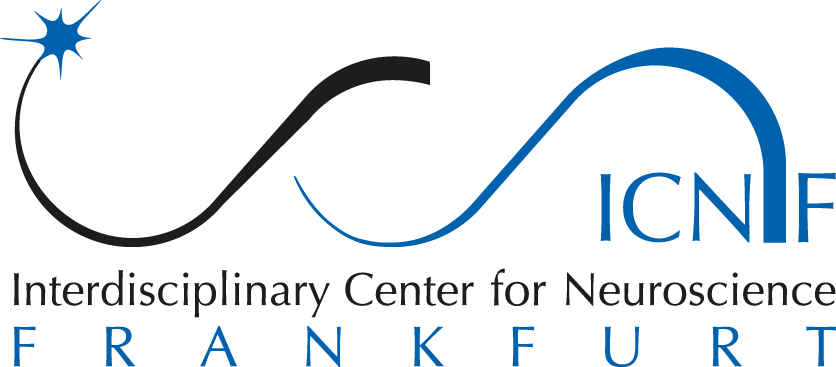
Prof. Dr. Thomas Deller
Dr. Senckenbergische Anatomie
Institute for Clinical Neuroanatomy
NeuroScienceCenter
Haus 89, Heinrich Hoffmann Str. 7
60528 Frankfurt am Main
Tel 069/6301 6361
Fax 069/6301 6425
E-Mail: t.deller@em.uni-frankfurt.de
Scientific Focus
Neurons in the brain remodel their structure under conditions of learning and memory as well as under conditions of brain disease (e.g., brain injury, Alzheimer´s disease; Parkinson´s disease). The lab is devoted to understanding the dynamics and the underlying molecular mechanisms of these reorganizational processes and searches for novel therapeutic strategies aimed at (i) preventing neuronal loss (“neuroprotection”) and (ii) the identification of naturally occurring repair mechanisms that can be exploited to promote functional regeneration (“neuroregeneration”). To achieve this mission, cellular approaches and disease models are employed to study the cellular fundamentals and these data are correlated with data from human brains of patients suffering from neurodegenerative diseases.
The main current projects are focusing on:
1. Structural plasticity of neurons under conditions of synaptic stimulation.
2. Structural reorganization of neurons following denervation.
3. Structural alterations of neurons in the context of disease models (Alzheimer´s disease, Parkinson´s disease)
4. Structural pathology of neurons during human neurodegenerative diseases (Alzheimer´s disease, Parkinson´s disease, polyglutamine diseases. Clinicopathological correlation studies and risk factor analysis.
Methods
Methods (lab):
– morphological techniques: Immunohistochemistry, electron microscopy, Neurolucida-reconstructions, stereology, in situ hybridization, FISH, unconventionally thick Nissl-stained sections for neuroanatomical analysis of human brains (Braak-technique)
– cell biological techniques: Organotypic slice cultures, dissociated neuronal cultures, adenoviral transfection techniques, laser microdissection in combination with real-time RT-PCR.
– electrophysiological techniques: in vivo LTP, extracellular recording techniques.
– imaging techniques: time-lapse imaging (confocal microscopy), multiphoton microscopy, Ca2+-imaging.
– model systems: Entorhinal denervation model (in vivo; in vitro); nigro-striatal model (in vitro), disease models (Alzheimer´s disease; Parkinson´s disease).
Selected Publications
Wagner J, Degenhardt K, Veit M, Louros N, Konstantoulea K, Skodras A, Wild K, Liu P, Obermüller U, Bansal V, Dalmia A, Häsler LM, Lambert M, De Vleeschouwer M, Davies HA, Madine J, Kronenberg-Versteeg D, Feederle R, Del Turco D, Nilsson KPR, Lashley T, Deller T, Gearing M, Walker LC, Heutink P, Rousseau F, Schymkowitz J, Jucker M, Neher JJ. Medin co-aggregates with vascular amyloid-β in Alzheimer’s disease. Nature. 2022 612(7938):123-131. doi: 10.1038/s41586-022-05440-3. Epub 2022 Nov 16. PMID: 36385530
Cuntz H, Bird AD, Mittag M, Beining M, Schneider M, Mediavilla L, Hoffmann FZ, Deller T*, Jedlicka P*. Neuron. A general principle of dendritic constancy: A neuron’s size- and shape-invariant excitability. 2021 109(22):3647-3662.e7. doi: 10.1016/j.neuron.2021.08.028. Epub 2021 Sep 22. PMID: 34555313
Müller UC, Deller T*, Korte M* (2017) Not just amyloid: physiological functions of the amyloid precursor protein family. Nat Rev Neurosci 18:281-298.
Vlachos A, Ikenberg B, Lenz M, Becker D, Reifenberg K, Bas-Orth C, Deller T (2013) Synaptopodin regulates denervation-induced homeostatic synaptic plasticity. Proc Natl Acad Sci USA 110: 8242-8247
Deller T*, Korte M*, Chabanis S*, Drakew A, Schwegler H, Stefani GG, Zuniga A, Schwarz K, Bonhoeffer T, Zeller R, Frotscher M, Mundel P (2003) Synaptopodin-deficient mice lack a spine apparatus and show deficits in synaptic plasticity. Proc Natl Acad Sci USA 100:10494-10499.
